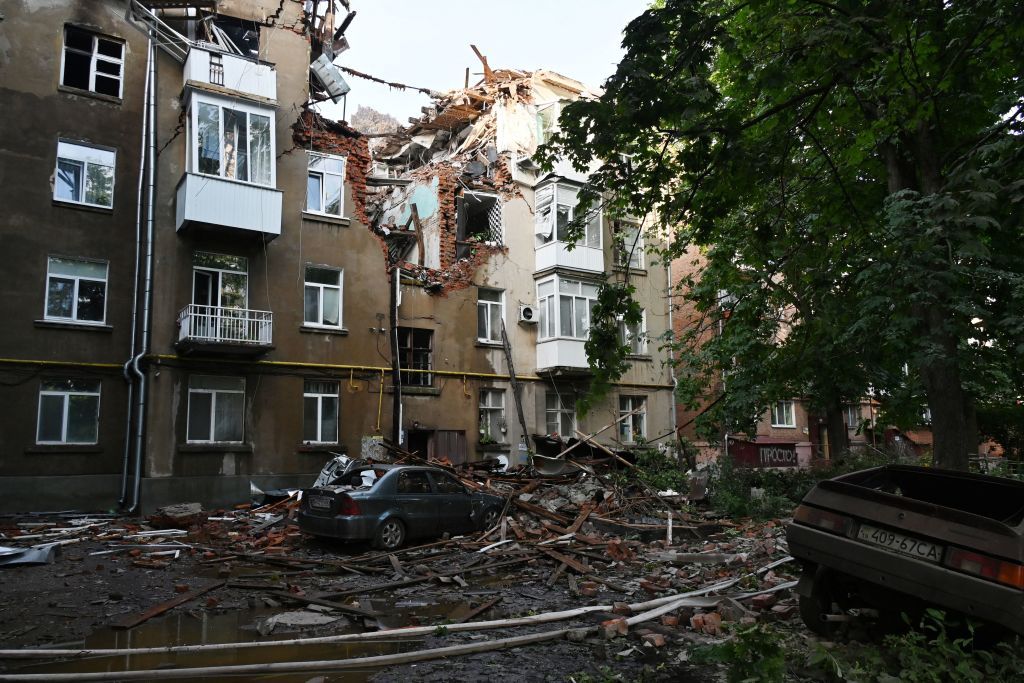
Key developments on July 3:
- Russian drone stike on Sumy kills 2, injures 19
- Prigozhin, Shoigu break their silence following Wagner's armed rebellion
- Defense Ministry says Ukraine liberated over 37 square kilometers in past week
- Writer Victoria Amelina dies after being injured in Kramatorsk strike
- New body for investigating Russian crime of aggression opens office in The Hague
- Ukraine designates Unilever 'international sponsor of war.'
The Sumy Oblast Military Administration reported on July 3 that a Russian drone strike on the northern city of Sumy had killed two people and injured 19 others.
Four of the injured are still receiving treatment in the hospital. According to the military administration, two of them are in intensive care, and the other two are in moderate condition.
Fifteen other victims have returned home after receiving medical treatment for less serious injuries, including a five-year-old child.
Russia launched four Iranian-made Shahed-136 drones at the city center of Sumy at around 10:49 a.m. local time. The attack reportedly damaged two apartment buildings and an administrative building, the military administration said.
Sumy is located approximately 40 kilometers from the Russian border. Russian forces regularly target Sumy Oblast, resulting in civilian casualties and damage to infrastructure.
 The Kyiv IndependentIgor Kossov
The Kyiv IndependentIgor Kossov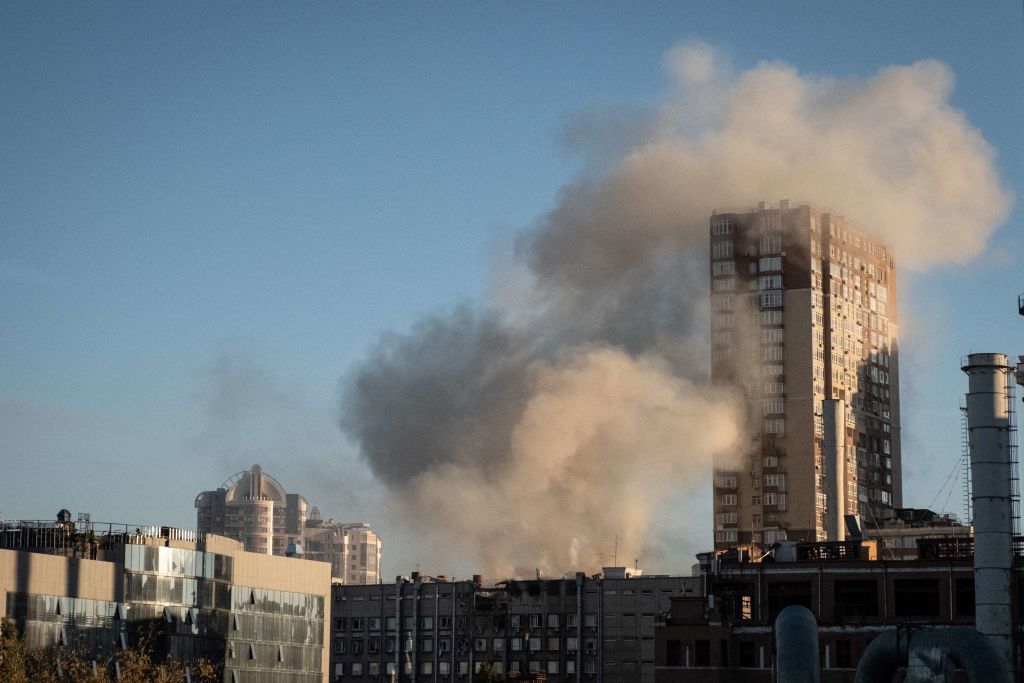
Prigozhin, Shoigu break their silence following Wagner's armed rebellion
In his first voice message since June 26, Yevgeny Prigozhin, the founder of the Wagner Group, expressed his anticipation of "further victories at the front." However, he did not elaborate on the specifics or provide any additional details.
The message was published on a Telegram channel associated with the Wagner Group, rather than that of the Concord Group, Prigozhin's press service.
It is not clear when or where the message was recorded. Speculation and rumors regarding Prigozhin's whereabouts have persisted ever since the conclusion of the Wagner short-lived rebellion on June 24.
In early June, the Russian Defense Ministry issued a decree set to force Wagner mercenaries under its influence.
This led to an armed rebellion, with Prigozhin and his forces stopping short of Moscow before agreeing to relocate to Belarus in a deal apparently brokered by Belarusian dictator Alexander Lukashenko.
Russian Defense Minister Sergei Shoigu also broke his silence for the first time since the Wagner rebellion, claiming that such "provocations" and "destabilization attempts" did not impact the loyalty of the Russian military.
Russian state news agency RIA Novosti quoted Shoigu as saying that "the provocation did not affect the activities of military units."
Prigozhin and Shoigu have had a longstanding public feud for months, with Prigozhin claiming that the Russian Defense Ministry was not providing Wagner forces enough ammunition during the 10-month-long battle for Bakhmut, resulting in larger casualties.
 The Kyiv IndependentAnastasiia Lapatina
The Kyiv IndependentAnastasiia Lapatina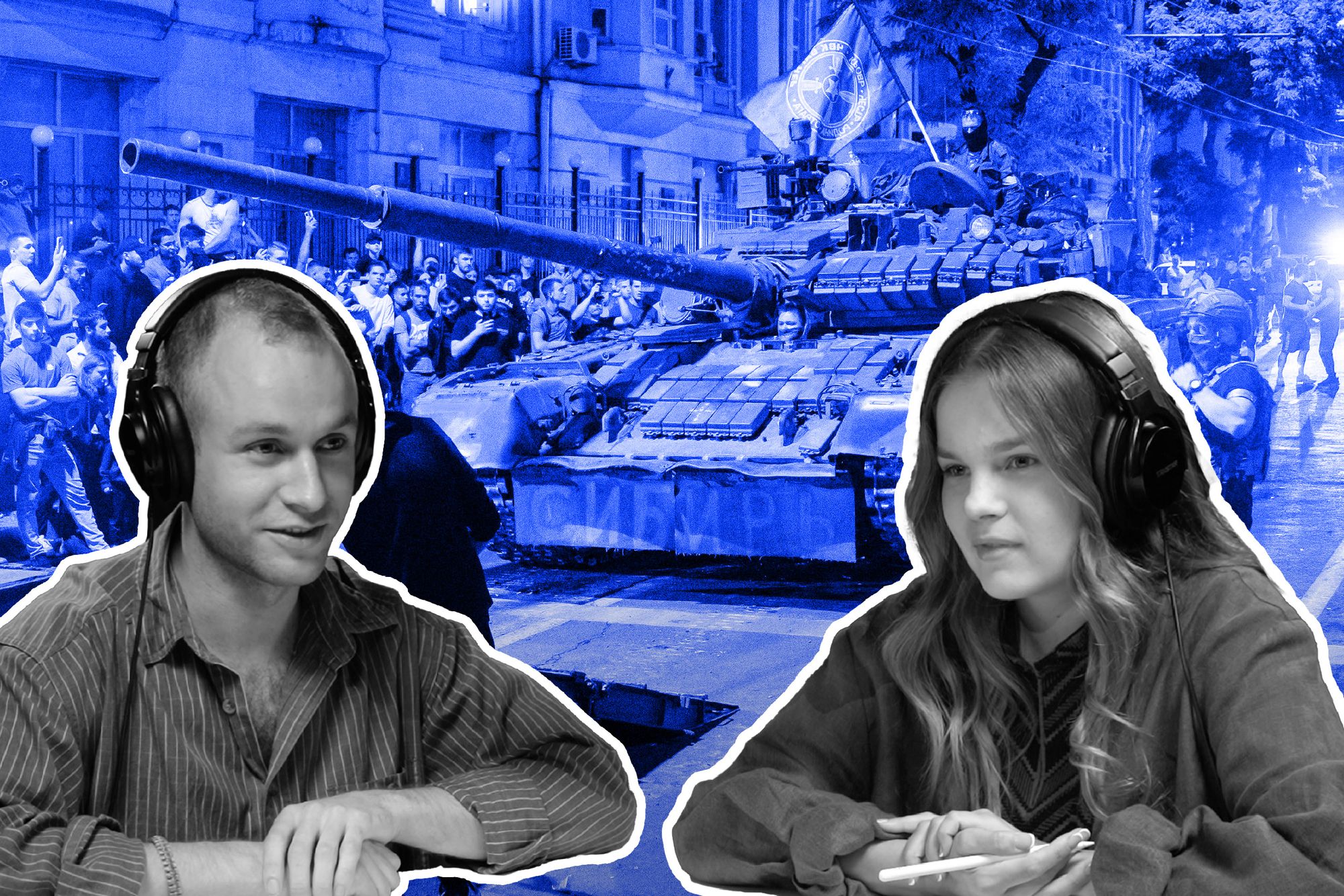
Defense Ministry says Ukraine liberated over 37 square kilometers in past week
Deputy Defense Minister Hanna Maliar reported on July 3 that Ukrainian forces had liberated 28.4 square kilometers in the south and nine square kilometers in the east over the past week.
According to Maliar, Ukrainian forces are actively pursuing successful offensive operations aimed at reaching Melitopol and Berdiansk in Zaporizhzhia Oblast.
These operations are specifically focused on advancing through the Novodarivka-Pryiutne, Novodanylivka-Robotyne, and Novosilka-Staromaiorske directions, Maliar added.
The area liberated in Ukraine's south now amounts to 158.4 square kilometers total.
Both offensive and defensive operations have been observed along the eastern front line. Russian forces are attempting to advance toward Lyman, Avdiivka, and Marinka, while the Ukrainian defense in these regions is exhibiting formidable resistance, according to Maliar.
Ukrainian troops are also making headway in the Bakhmut direction, Maliar added.
 The Kyiv IndependentIgor Kossov
The Kyiv IndependentIgor Kossov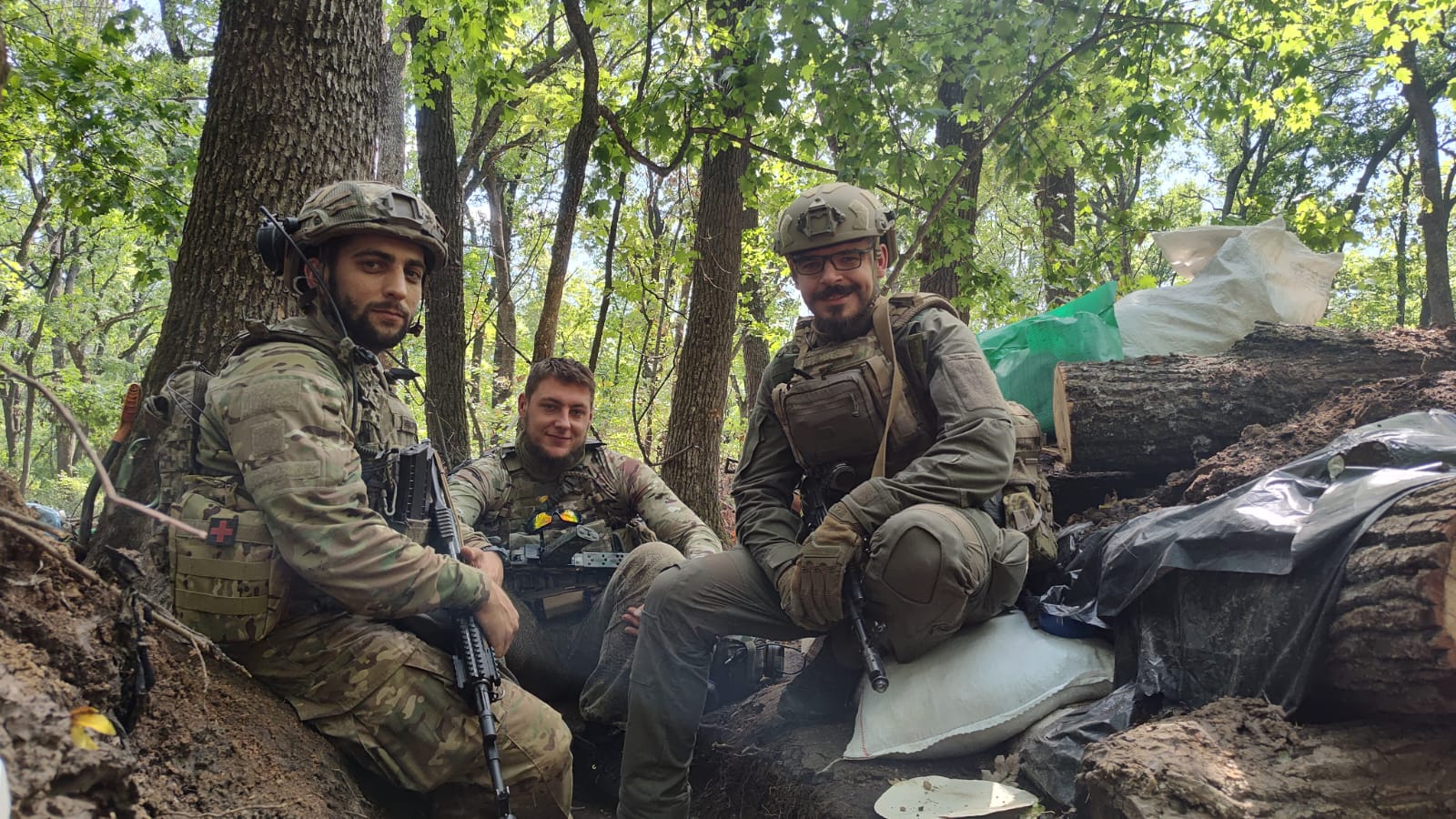
Writer Victoria Amelina dies after being injured in Kramatorsk strike
The writers' association PEN Ukraine confirmed that Ukrainian writer and war crimes researcher Victoria Amelina had succumbed to her injuries from the June 27 missile strike on Kramatorsk.
Amelina was in Kramatorsk with a delegation of Colombian writers and journalists when Russian forces fired two Iskander missiles at the city, hitting a popular restaurant downtown.
Kramatorsk is located some 55 kilometers from the front line in Donetsk Oblast, and many foreign journalists went there to regroup, as well as Ukrainian soldiers on leave. The city has been a frequent target of Russian missiles.
"Doctors and paramedics in Kramatorsk and Dnipro did everything they could to save her life, but the injuries were fatal," the statement reads.
"In the last days of Victoria’s life, her closest people and friends were with her."
Amelina made the decision to train to become a war crimes researcher after the start of the full-scale invasion and joined the human rights organization Truth Hounds. She had been documenting Russian war crimes on de-occupied territories in the eastern, southern, and northern parts of Ukraine.
Amelina was working on completing her first non-fiction book in English titled "War and Justice Diary: Looking at Women Looking at War" about women documenting Russian war crimes and living through war.
 The Kyiv IndependentKate Tsurkan
The Kyiv IndependentKate Tsurkan
New body for investigating Russian crime of aggression opens office in The Hague
The European Commission announced on July 3 that the International Center for the Prosecution of Crimes of Aggression against Ukraine (ICPA) opened an office in The Hague.
"Russia's invasion of Ukraine continues to bring unspeakable horrors, every day. Deeply worrying news about deliberate attacks against civilians, including children, have become a cruel daily reminder of the bloodshed that Putin brought back to our continent," European Commission President Ursula von der Leyen said.
According to von der Leyen, the ICPA will "play a key role in making sure that the (Russian) perpetrators are brought to justice, including for the crime of aggression."
Supported by the EU since March, the ICPA consists of prosecutors hailing from Ukraine, the EU, the U.S., and the International Criminal Court (ICC). Its primary objective is to gather evidence as the initial phase towards establishing a tribunal to hold the Russian leadership accountable for its war against Ukraine.
 The Kyiv IndependentFrancis Farrell
The Kyiv IndependentFrancis Farrell
Ukraine designates Unilever 'international sponsor of war'
Ukraine's National Corruption Prevention Agency (NACP) added British corporation Unilever to its "international sponsors of war" list on July 3 for continuing to do business in Russia.
Unilever previously pledged to cease operations in Russia but has failed to do so.
According to the NACP, Unilever paid about $50 million in taxes to the Russian state budget in 2022. Unilever's profit in Russia increased from $61 million in 2021 to more than $117 million last year.
More than 3,000 people work for Unilever in Russia, the anti-corruption agency wrote. In 2022, Russian business accounted for 1.4% of the corporation's turnover and 2% of its net profit, which grew by 24.9% compared to 2021, amounting to eight billion euros.
"We have included this company in the list of international sponsors of war because their hundreds of millions in tax contributions to the Russian budget help to finance the war against Ukraine, and in this way may even indirectly finance some Russian mercenary groups," said the NACP chief Oleksandr Novikov.
"Unilever must leave Russia now, or history will remember its complicity in this war."
Unilever is one of the world's leading suppliers of food, personal, and home care products. It owns over 400 brands and sells products in more than 190 countries, including Ukraine.
 The Kyiv IndependentAlexander Query
The Kyiv IndependentAlexander Query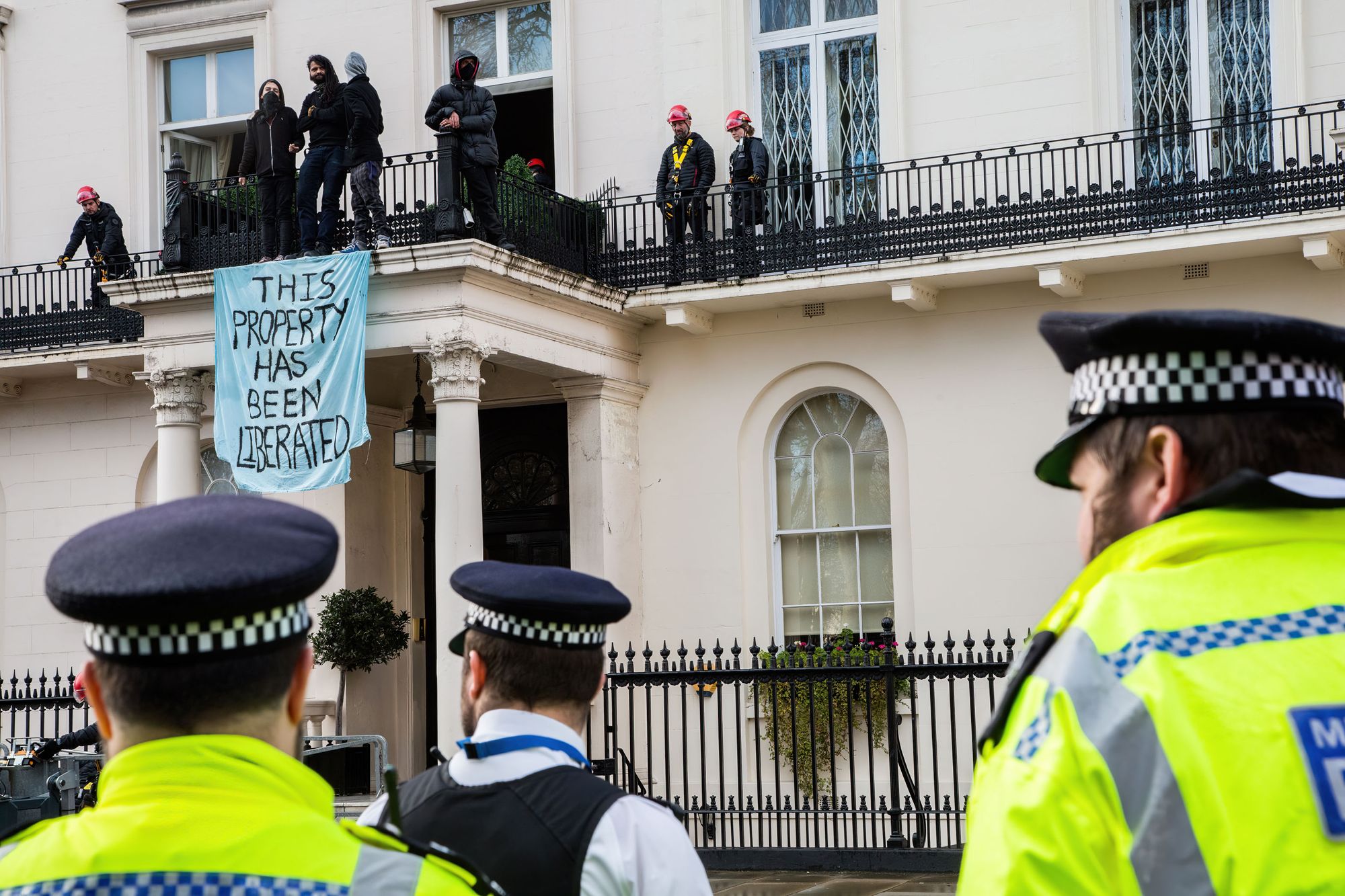
Comments
No comments yet. Be the first to react!